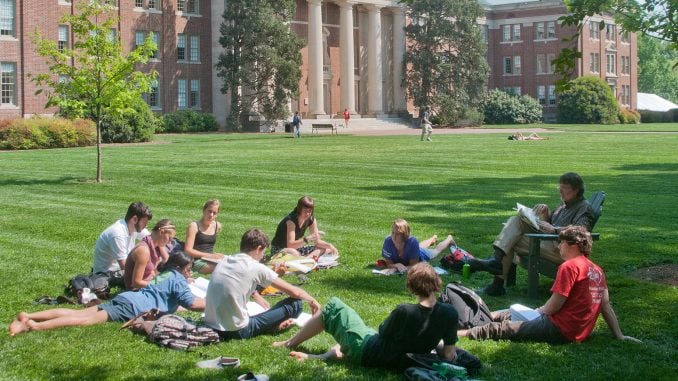
At colleges and universities across North Carolina and the nation, many incoming freshmen have already attended their respective orientations. And for most students, it will be the first time they will be living on their own. They may already be prompted to get a few books for their summer reading list, often about diversity or other societal and cultural issues. UNC Chapel Hill recommends “How Does it Feel to be a Problem: Being Young and Arab in America” by Moustafa Bayoumi. North Carolina State University recommends “Between the World and Me” by Ta-Nehisi Coates. When students report to school in August they may undergo dramatic changes from their upbringing and might even come home lamenting the new-found “privilege” of a middle-class background.Colleges often make headlines now because of new social justice initiatives, campus grievance culture, and victimhood. After racial protests wracked The University of Missouri in Columbia, enrollment has fallen by over 35 percent in two years. Empty dorm rooms are now rented out for $120 a night for home football games and solar eclipse viewing (economy sheets included). Still, higher education for many remains an invaluable experience, especially if they are equipped and trained to think critically.While most students will be reading assigned texts and carefully controlled group-think is worsening on some campuses, broadening the mind beyond an increasingly stale liberalism and secularism is critical for today’s students. Below are a few books college students should be reading not only to get ahead, but might just help one thrive morally and economically.”Common Sense Economics” by James Gwartney, Richard L. Stroup and Dwight R. Lee: Let’s face it, most adults, not just college students, have little understanding of economic truths. However, a new college student will want to have a firm depth and understanding of the subject when their English or gender studies professor lectures them about the need for universal rent control or a guaranteed minimum income. This book makes economics accessible, and helps to explain common sense insights on wealth creation and the true cost of government.”How to Win Friends and Influence People” by Dale Carnegie: First published in 1936, Carnegie’s classic may seem outdated for some, but it has sold over 30 million copies and may be even more relevant with the rise of social media and narcissism. If one could take many of Carnegie’s timeless principles sincerely and to heart, it will reap friendships and rewards. Many top business leaders swear by Carnegie’s principles for success. “Mere Christianity” by C.S. Lewis: This classic is essential reading for Christians of all traditions. Lewis specifically wrote the book with an ecumenical framework to tackle the basic questions and truth claims about Christianity. While the stereotypical professor attacking Christianity is often an overblown fear, “Mere Christianity” will provide plenty of logical insights into the nature and character of God and why the Christian faith should receive careful consideration.”The American Cause” by Russell Kirk: Civics in this nation is abysmal. A study commissioned a decade ago by the University of Connecticut’s Department of Public Policy showed that colleges and universities completely fail at teaching civics. Out of 50 schools surveyed, they all scored below a D+, except for Harvard and Grove City College, which scored in the high 60s. It’s hard to imagine the situation has improved. While many college civic classes are hijacked by counterrevolutionary thought, Kirk explains the reasons for America’s founding and why its principles are worth preserving.”What Color is your Parachute?” by Richard N. Bolles: An exceptional book for college students facing graduation and looking to land a job. If new graduates don’t want to live with mom and dad after school, Bolles insightful advice will help put the best foot forward to secure employment.
Ray Nothstine is a member of the North State Journal’s editorial board, separate from the news staff. Unlike other newspapers, the North State Journal does not publish unsigned editorials; the author or authors of every editorial, letter, op-ed, and column is prominently displayed. To submit a letter or op-ed, see our submission guidelines.



